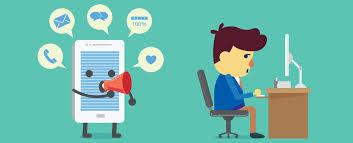How to Prepare for A Job Interview
Interviewing is a technique, thus you’ll need to practice if you want to improve your interviewing skills. Learning how to answer questions pertaining to your role and researching them is part of interview preparation. Practicing them once with someone allows you to evaluate how well you respond to each topic in the moment, as well as how well you tackle questions that are unique to you. Working on your posture, look, and non-verbal communication, such as how you use your hands in conversation, may all be done while practicing.
Why Prepare
- It lessens stress and raises your level of comfort when you know many of the questions they might ask and how to clearly and concisely respond to them.
- Knowing how to respond to questions gives you confidence. In an interview, being confident boosts your chances of recalling the abilities and experience you gained in past jobs.
- Your mock interviewer(s) can help you unravel your strengths and weaknesses. They can advise on where and how to improve.
- Mock interviews can also assist you to improve your body language, personal demeanour and business etiquette. This includes the way you greet the interviewer and the way you enter or exit the room.

In this post, we’ll go over describing five particular things to do before any interview.
Practice Using Mock Interviews
A mock interview is a job interview simulation that is conducted to prepare the interviewee for the real thing. The mock tries to match as nearly as possible the conditions of the real event. The goal is to see how the interviewee would react in hypothetical situations, as well as to anticipate any complications that may arise.
Mock interviews are an excellent approach to increase your chances of being hired swiftly. Before you step into the first encounter with your possible employers, perfecting your interview strategy will greatly increase your chances of success.
Be On Time
Arriving early to an interview allows you to relax and collect your thoughts. It will give you time to go through the questions you’ve prepared, go over your presentation (if applicable), and go over the responses to any questions you could be asked.
It will also give you time to relax, sip some water, and, if required, use the restroom. This should enable you to approach the interview as relaxed and at ease.

Organize Your Interview Documents
To bring to the interview, put together a professional folder or file. Include a copy of your résumé, as well as a copy of your cover letter and any references you may have.
If the interviewer asks for a list of references, have it ready. Include copies of any credentials or qualifications that are relevant. Bring a notebook and pen with you to the interview so you may take notes.
Include your background research as well as a list of potential questions. Make copies of any other documents you need to give, such as proposals or presentations.
Curb Distractions
If you want to do well in an interview, you must relax beforehand and stay away from all the distractions i.e. switch off your mobile, chat and other notifications, and let important people know upfront that you will be unavailable for some time. Prior to the interview, set aside some time to meditate & collect your thoughts and focus on the interview.
Even if you don’t want to smile, forcing yourself to do so will make you feel better. According to several researches, pushing yourself to smile reduces stress and lowers your heart rate during stressful conditions.

Know Thy Interviewers
Before your interview, do some research on each member of the panel. Study essential data such as their main accomplishments and important initiatives they’ve taken in the organisation, as well as their names and job positions.
During a panel interview, make an effort to engage with each interviewer individually so that you may develop an equal relationship with everyone. When speaking with each interviewer, make eye contact and strive to give each panel member dedicated attention when answering general questions.
As you research about organisation and the members of the hiring team, try to come up with questions in advance. Inquire about each panelist’s distinctive projects or aspects during the interview.
Success Is When Preparation Meets Opportunity
In conclusion, it is always good to prepare for the interview beforehand and not be spontaneous to overlook its importance.


